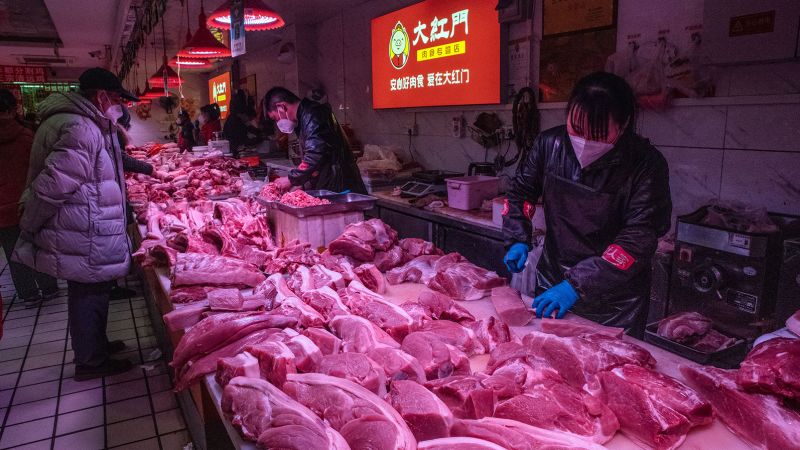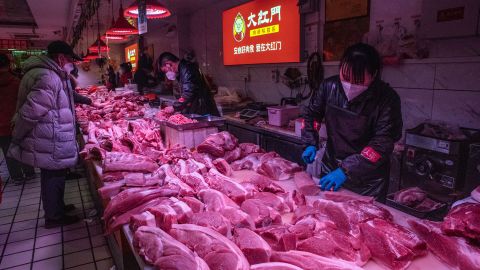China’s capital offers $6 monthly handout to offset inflation. The public says it’s not nearly enough | CNN Business

Hong Kong
CNN
—
Beijing will give out a $6 monthly cash subsidy to low-income residents to cushion the impact of rising food prices, a move that has unexpectedly angered many online who say the amount is far too low.
The announcement from the city government comes as food inflation accelerated in China after policymakers scrapped their zero-Covid strategy in December and eased monetary policy further to fuel economic recovery.
Last week, protests by retirees broke out in the cities of Wuhan and Dalian over cuts to their medical care benefits, highlighting the growing risk of unrest over livelihood issues as China’s economy struggles to regain its footing after being drained by pandemic policies.
The demonstrations were the latest outburst of public discontent since mass protests against Covid curbs gripped the country late last year. The recent protests underscored the financial pressure on local governments, after three years of the zero-Covid policy strained their coffers and a property market slump severely eroded their income.

According to the Beijing Municipal Commission of Development and Reform, the city’s economic regulator, more than 300,000 people on low incomes will each receive a cash payment of 40 yuan (about $6) per month. The first payment will be given out later this month and it’s unclear for how long they will continue.
“In January, food prices in Beijing rose by 6.6%, meeting the conditions for starting the price-linked subsidy program,” the state-run Beijing Daily newspaper quoted an official from the commission as saying in a Friday report.
“[We will] try to do a good job in ensuring the basic livelihood of the needy people … and continuously enhance the people’s sense of gain, happiness and security.”
China launched a low-income subsidy program in 2011 to offer cash handouts to the needy when the consumer price index or food prices hit certain thresholds. Each city or region sets its own standard as living costs vary across the country.
The news of Beijing’s latest handout was not well received by the public, who took to social media to complain about the high cost of living in the city.
“40 yuan? Are you serious? [When] the low-income people take the subway to collect the money and then they return, they lose 8 yuan,” said one comment on Weibo.
“Is it like an insult? [The amount] just subsidizes a bowl of noodles,” another Weibo user said.
Some people criticized the country’s weak social welfare system, while others blasted the government’s move to write off billions of debt to other countries.
“Can’t we question the move? Do you think the current welfare system in our country is good? Can it meet the needs of people?” one said.
China’s consumer inflation accelerated in January, as the CPI rose 2.1% from a year earlier. Although the headline figure remains relatively low compared to other countries, food prices jumped 6.2%, with pork and fruit prices rising the most.
In Beijing, food prices outpaced the national level. Vegetable prices soared 24% last month.
Share this news on your Fb,Twitter and Whatsapp
Times News Network:Latest News Headlines
Times News Network||Health||New York||USA News||Technology||World News